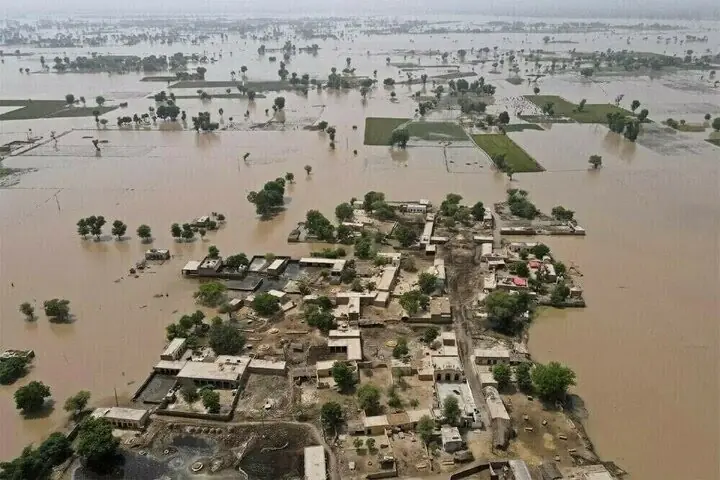Severe flooding in Pakistan this year has devastated over 1.3 million acres of agricultural land across Punjab alone, dealing a crippling blow to the farming sector and threatening food security, said the Pakistan Business Forum (PBF) Khawaja Mehboob ur Rehman.
Speaking to Business Recorder, PBF chief said Pakistan’s agricultural production targeted for the current fiscal year was under serious threat, putting rural livelihoods and national food security in jeopardy.
“This crisis must be treated as a wake-up call to reform our agricultural strategies,” Rehman stressed.
“We must stop viewing floods purely as natural disasters and start managing them as potential resources through better planning and infrastructure.”
The forum raised concerns over the large-scale devastation caused by recent flash floods in Punjab and the looming threat to Sindh’s agricultural backbone.
Calling the situation a national emergency, PBF chief appealed to both federal and provincial governments to take immediate and coordinated actions to mitigate the crisis and protect the country’s food security.
“As per preliminary assessments, more than 1.3 million acres of agricultural land in Punjab have already been submerged, dealing a severe blow to the province’s farming sector,” he said.
Faisalabad Division has reported the highest damage, with approximately 300,000 acres affected. Gujrat and Gujranwala Divisions each saw 200,000 acres inundated, while Sahiwal Division lost 145,000 acres, Bahawalpur 130,000 acres, and Lahore Division 99,000 acres, according to the PBF.
Meanwhile, he continued, Multan Division stood at a critical juncture, as floodwaters continued to sweep through villages in Multan, Vehari, and Khanewal, destroying large swathes of farmland.
“The impact on crops is equally alarming. Initial estimates suggest losses of up to 60% in paddy fields, 30% in sugarcane, and 35% in cotton. Maize crops have also suffered considerable destruction.
“The damage is expected to have far-reaching consequences for national food supplies, and the government may need to import approximately 5 million tons of wheat to stabilize domestic prices and prevent shortages.”
Rehman also apprised about the recommendations the forum had made to the Prime Minister Shehbaz Sharif.
These include the immediate declaration of an agricultural emergency by the federal cabinet, launch of large-scale canal infrastructure projects in Punjab and Sindh, and provision of interest-free loans of up to Rs2 million for small and mid-sized farmers.
The forum also called for an action against illegal encroachments along riverbanks, strengthening of the revenue and irrigation departments, development of localised water storage systems, and the activation of District Price Control Committees to curb hoarding and profiteering.
Furthermore, the PBF urged the Economic Coordination Committee (ECC) to authorise both public and private imports of wheat and rice to stabilise market prices.
Meanwhile, PBF chief organiser Ahmad Jawad said floods had not only destroyed crops but also affected livestock, causing prices of milk and eggs to rise.
He warned the situation could worsen if floodwaters entered Sindh.
Jawad urged the government to waive the import duty on vegetables from Afghanistan to help stabilise prices.


